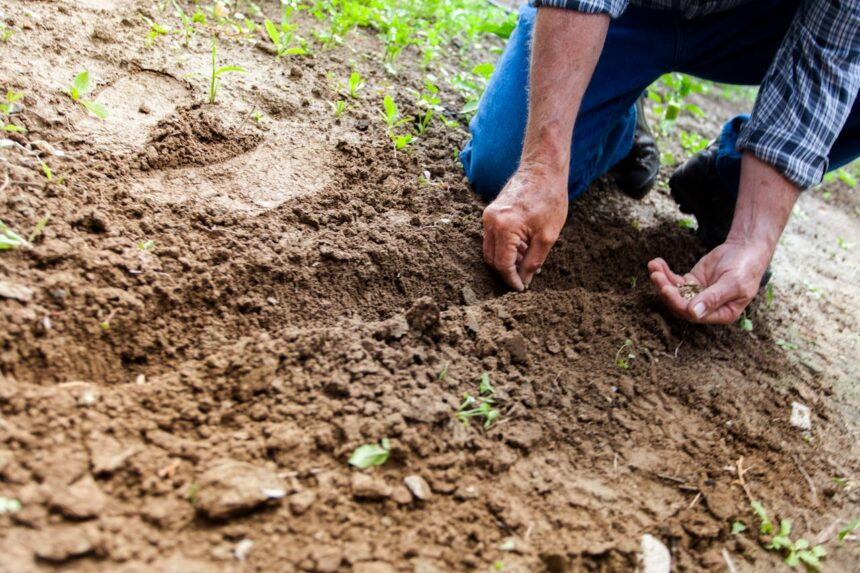Gardening isn’t just a hobby; it’s a sustainable lifestyle choice that can help you save money and resources while enjoying the beauty of nature. By embracing DIY projects and hacks, you can transform your garden into a thrifty oasis that produces bountiful harvests without breaking the bank. In this comprehensive guide, we’ll explore various ways to save money and resources through gardening, from homemade compost bins to water-saving techniques and beyond.
Benefits of Gardening:
Cost Savings
Gardening can significantly reduce your grocery bill by providing a steady supply of fresh produce at a fraction of the cost of store-bought items. By growing your own fruits, vegetables, and herbs, you can enjoy nutritious, organic produce without the premium price tag.
Resource Conservation
Gardening promotes resource conservation by minimizing the need for packaging, transportation, and energy-intensive food production processes. By sourcing ingredients from your garden, you can reduce your carbon footprint and contribute to a more sustainable food system.
DIY Projects for the Garden:
Homemade Compost Bin
Create a homemade compost bin using repurposed materials such as wooden pallets, plastic bins, or wire mesh. Place the bin in a convenient location in your backyard and fill it with kitchen scraps, yard waste, and other organic materials. Regularly turn the compost to promote decomposition, and in a few months, you’ll have nutrient-rich compost to amend your garden soil.
Raised Bed Construction
Build raised beds using inexpensive materials such as untreated lumber, cinder blocks, or recycled pallets. Raised beds provide better drainage, soil aeration, and weed control compared to traditional garden beds, allowing you to grow more food in less space with fewer inputs.
Hacks for Saving Money and Resources:
Water Conservation Strategies
Conserve water in the garden by implementing water-saving techniques such as drip irrigation, mulching, and rainwater harvesting. Drip irrigation delivers water directly to the roots of plants, minimizing evaporation and water waste. Mulching with organic materials such as straw or wood chips helps retain soil moisture and suppress weeds, reducing the need for frequent watering. Collect rainwater in barrels or cisterns to supplement irrigation needs during dry periods and reduce reliance on municipal water sources.
Seed Saving Techniques
Save money on seeds by collecting and storing seeds from your garden plants for future use. Allow plants to mature and produce seeds, then harvest and dry the seeds thoroughly before storing them in a cool, dry place. Label and organize seeds by plant type and variety to ensure accurate identification and viability when sowing them in subsequent seasons.
Conclusion:
Gardening offers a multitude of benefits beyond just beautiful blooms and delicious harvests. By embracing DIY projects and hacks, you can save money, conserve resources, and cultivate a more sustainable lifestyle. Whether you’re building raised beds, composting kitchen scraps, or conserving water in the garden, every small effort adds up to significant savings and positive environmental impact.
FAQs:
- Can I use any container for a homemade compost bin?
- Yes, you can use a variety of containers for a homemade compost bin, including plastic bins, wooden pallets, wire mesh, or even repurposed trash cans. Choose a container size and design that suits your space and composting needs.
- What are some easy DIY hacks for conserving water in the garden?
- Easy DIY hacks for conserving water in the garden include installing a drip irrigation system, mulching garden beds with organic materials, and collecting rainwater in barrels or cisterns. These simple techniques can help reduce water waste and promote efficient water use in the garden.
- How can I build raised beds on a budget?
- You can build raised beds on a budget using inexpensive materials such as untreated lumber, cinder blocks, or recycled pallets. Avoid treated lumber, which may contain harmful chemicals, and opt for locally sourced or salvaged materials to minimize costs.
- What are the benefits of seed saving?
- Seed saving allows you to preserve heirloom varieties, adapt plants to your local growing conditions, and save money on seeds over time. By collecting and storing seeds from your garden plants, you can create a self-sustaining seed bank and ensure a continuous supply of seeds for future seasons.
- Can I compost meat and dairy scraps in a homemade compost bin?
- It’s best to avoid composting meat, dairy, and oily foods in a homemade compost bin, as they can attract pests and cause odors. Stick to composting fruit and vegetable scraps, eggshells, coffee grounds, and yard waste for optimal composting results.
- How can I make my garden more wildlife-friendly on a budget?
- To make your garden more wildlife-friendly on a budget, incorporate native plants, provide water sources such as bird baths or shallow ponds, and create habitat features such as rock piles, brush piles, or nesting boxes. These simple additions can attract a variety of beneficial wildlife species to your garden without breaking the bank.









